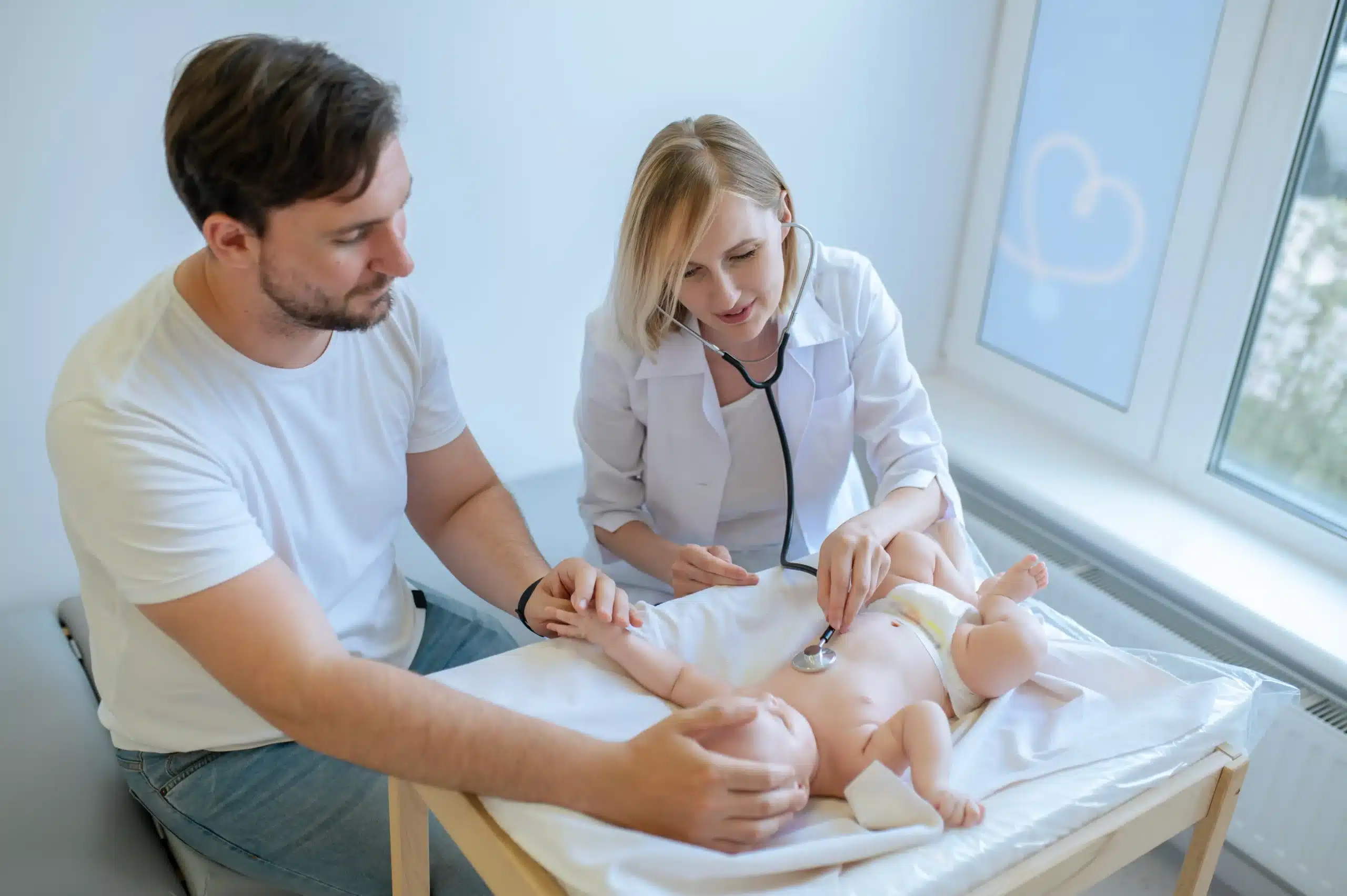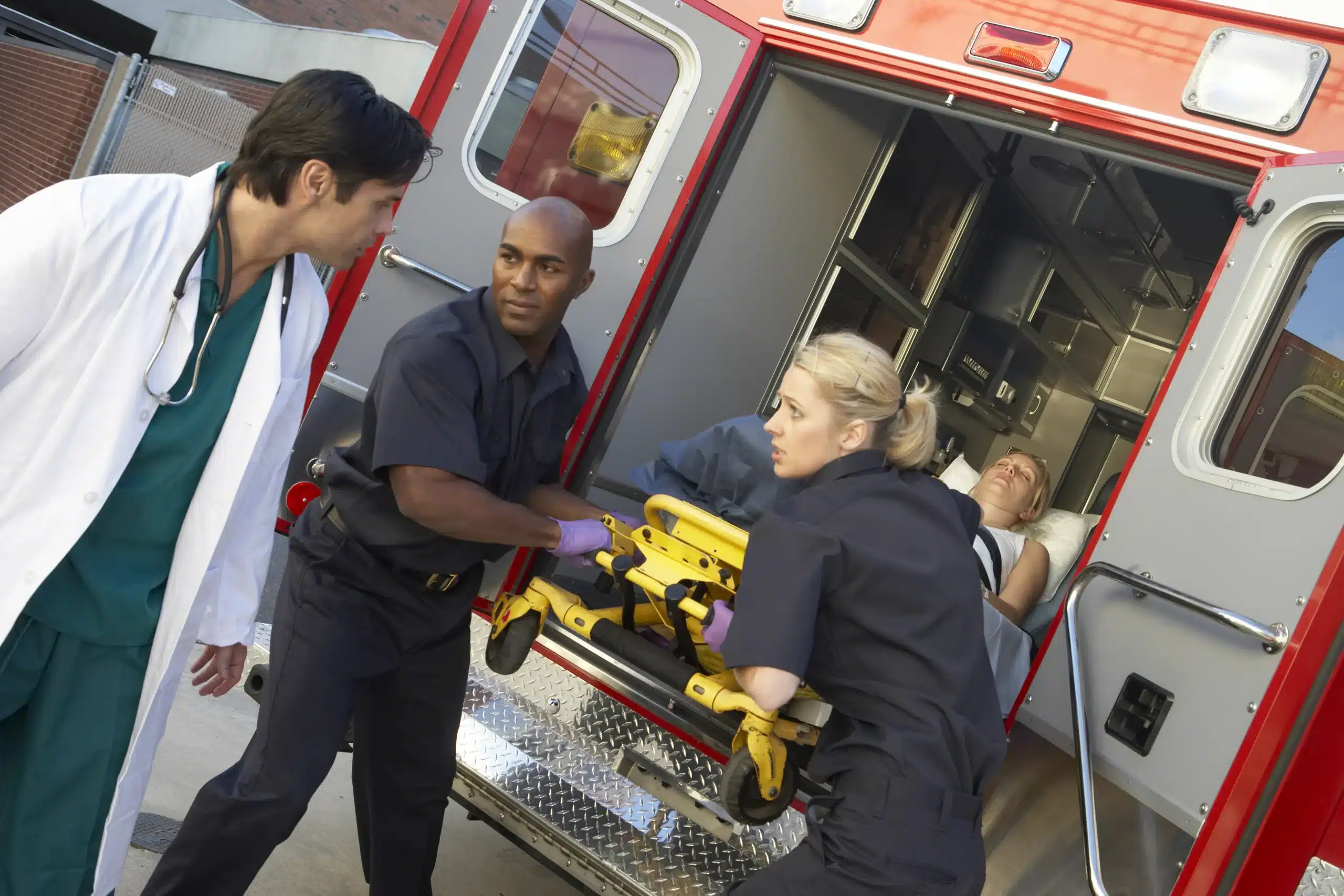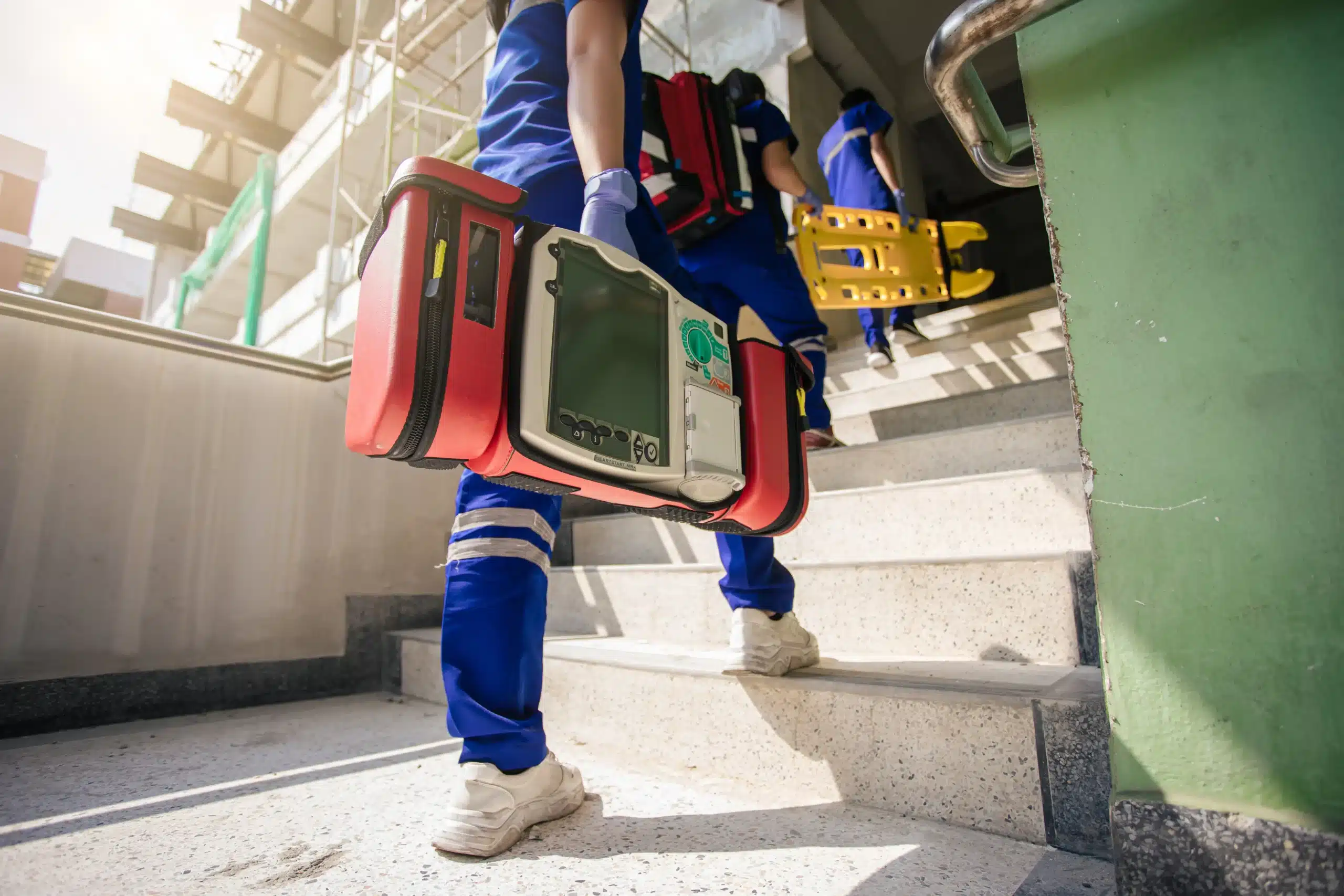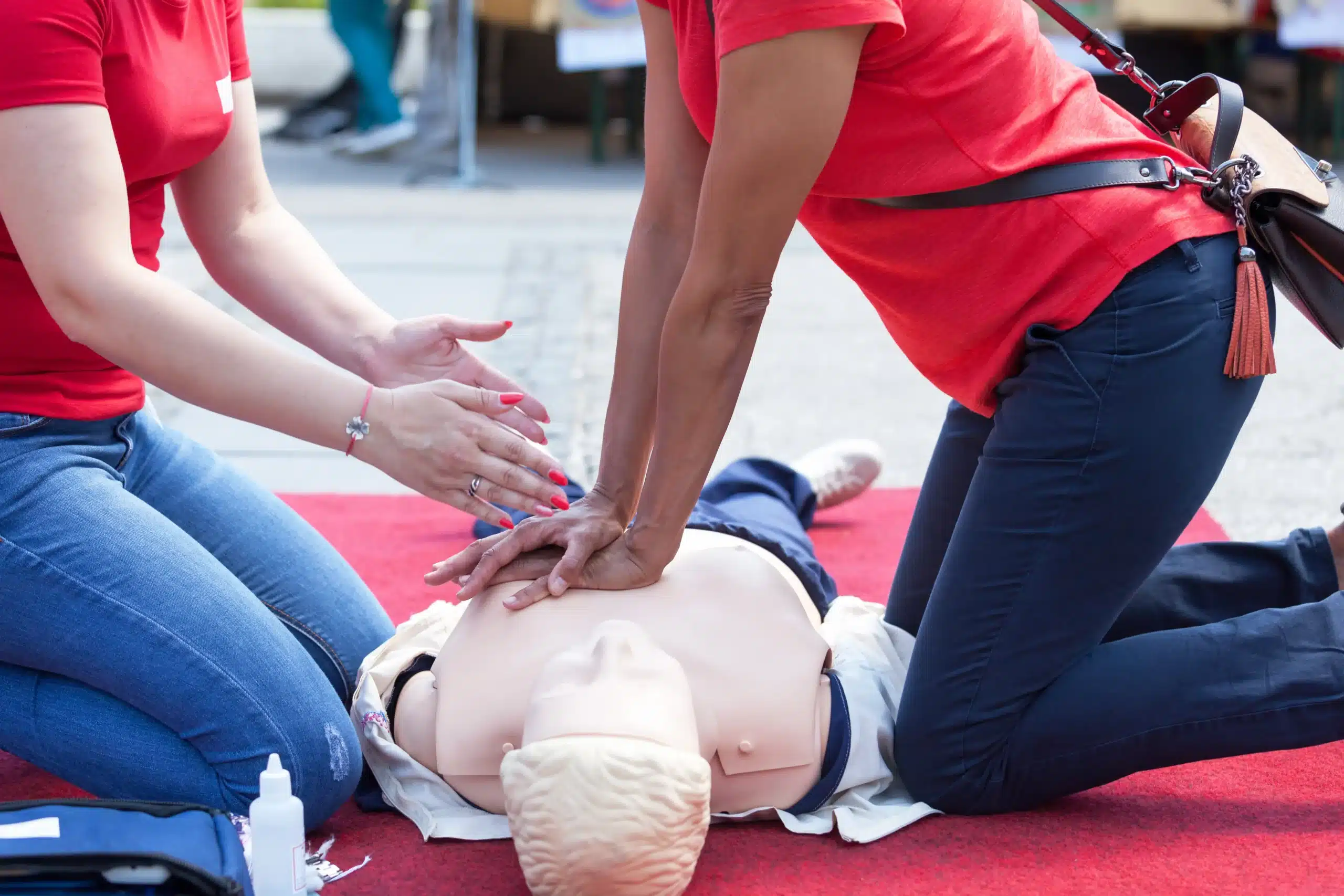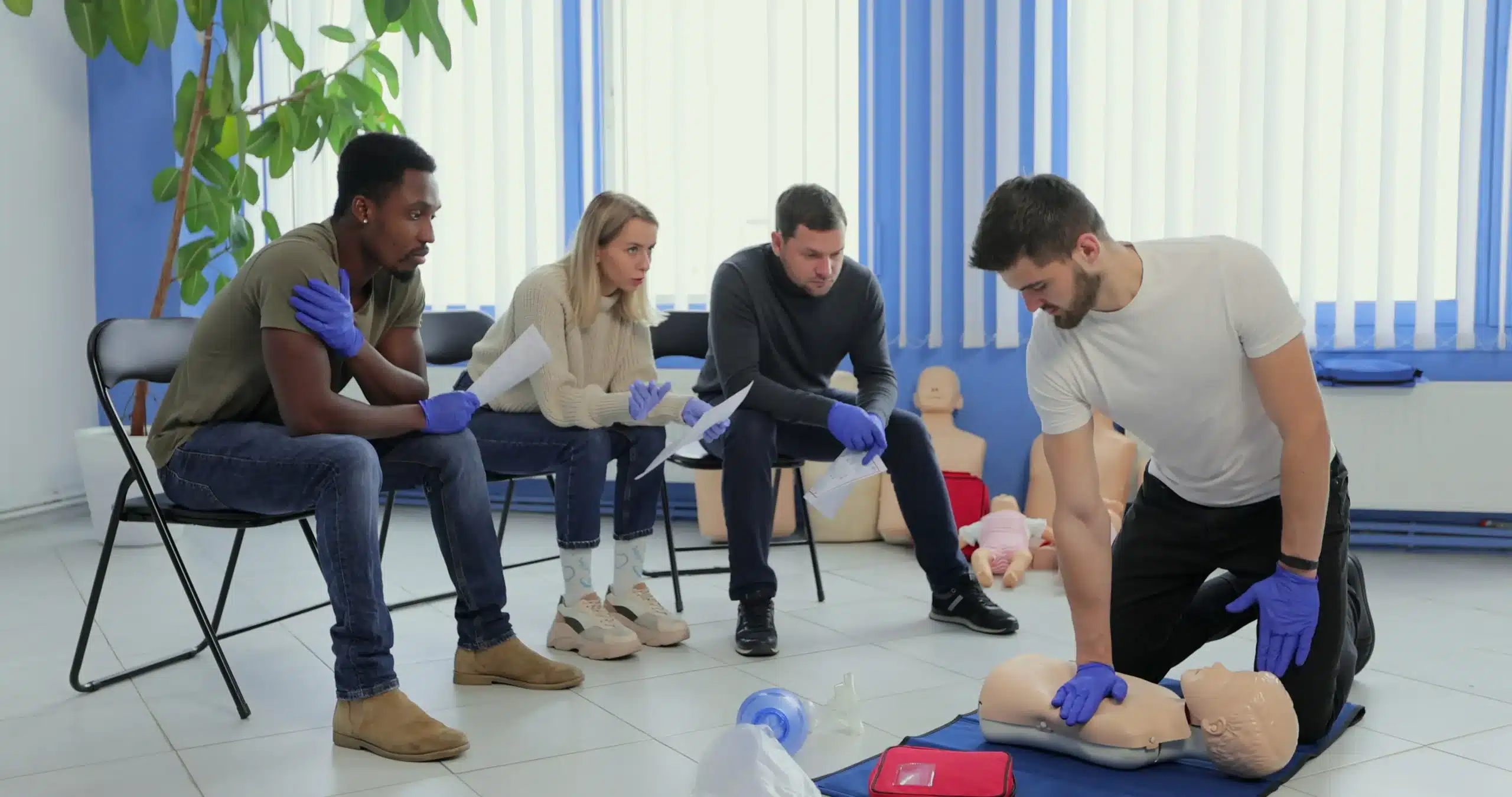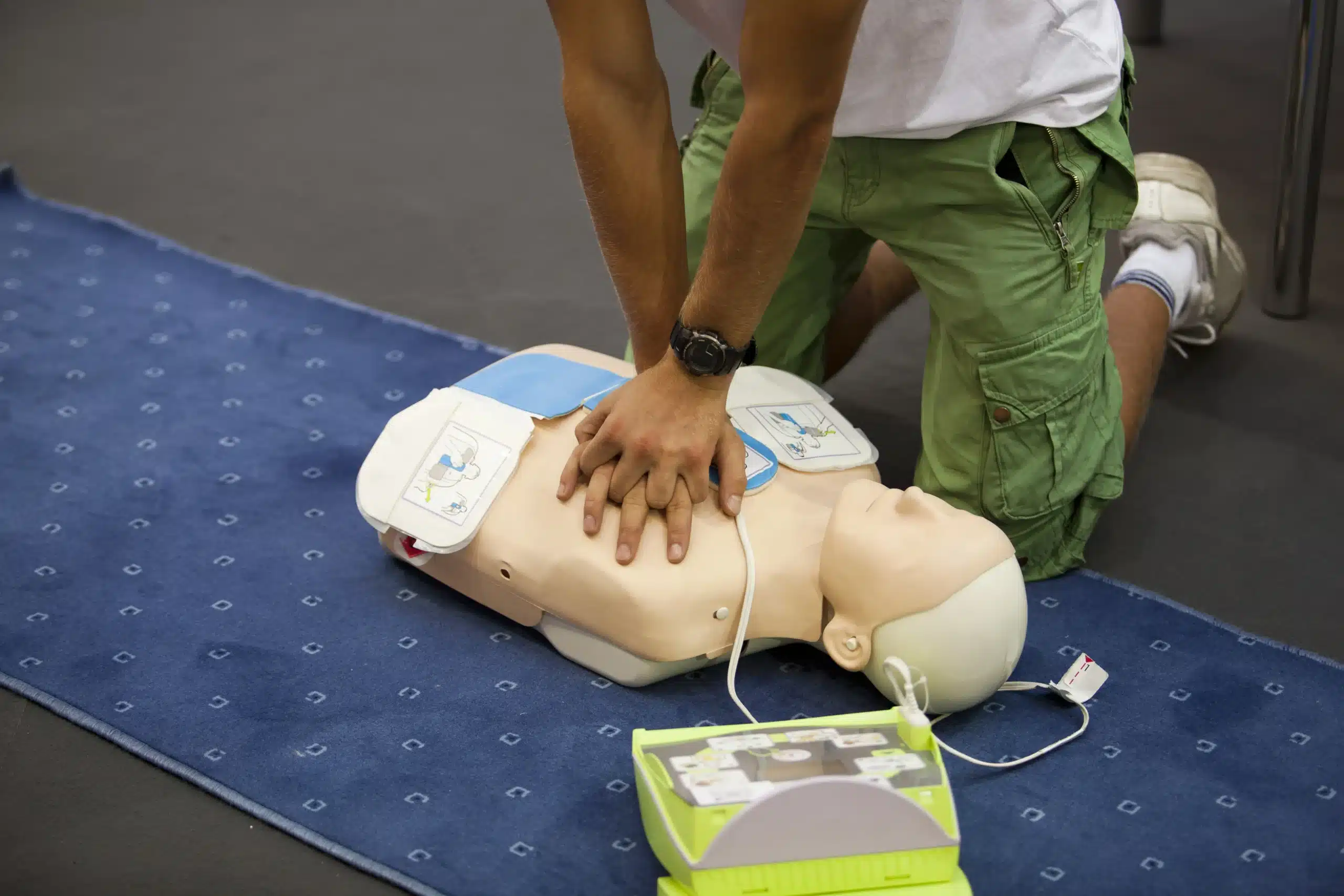Working in healthcare, especially around kids, means being ready for anything. From everyday bumps and bruises to more serious situations, knowing you have the skills to respond effectively can make all the difference. That’s where Pediatric Advanced Life Support (PALS) training comes in. It’s a specialized program designed to equip healthcare professionals with the tools they need to handle pediatric emergencies with confidence. If you’re a healthcare provider in Benicia or a surrounding area like Martinez or Port Chicago and you’re looking to enhance your skills, understanding what PALS certification entails is a crucial first step. This article explores the ins and outs of PALS, from course content and available training options for pediatric advanced life support in Benicia to the benefits of certification and how it can advance your career.
Key Takeaways
- PALS certification equips healthcare providers with life-saving skills: It focuses on the unique needs of infants and children during medical emergencies, covering everything from CPR to advanced airway management. This specialized training is crucial for anyone working in pediatrics.
- Find a PALS course that fits your learning style and schedule: Options range from traditional in-person classes to flexible online and hybrid formats. Consider factors like instructor experience and class size when making your decision.
- Staying current with your PALS certification is essential for providing the best care: Renew your certification every two years and stay informed about the latest guidelines in pediatric emergency care. This ongoing commitment benefits both your patients and your career.
What is Pediatric Advanced Life Support (PALS)?
Pediatric Advanced Life Support (PALS) is a specialized program designed to equip healthcare professionals with the skills to manage pediatric emergencies. It focuses on providing high-quality care to infants and children, emphasizing early recognition and intervention in critical situations like respiratory distress, shock, and cardiopulmonary arrest. The goal is to improve outcomes for young patients by preparing providers to act quickly and effectively.
Core PALS Training Components
PALS training emphasizes a systematic approach to pediatric assessment and treatment. It covers essential skills such as high-quality CPR, airway management, vascular access, and medication administration. The program uses simulations and hands-on practice to build proficiency in these critical interventions. This practical training ensures healthcare providers can confidently apply their knowledge in real-life emergencies. PALS training also stresses the importance of teamwork and communication during emergencies.
Why Healthcare Providers Need PALS
PALS certification is vital for any healthcare professional who might encounter pediatric emergencies. This includes pediatricians, emergency physicians, nurses, paramedics, and respiratory therapists. Holding a
Common PALS Misconceptions
Several misconceptions exist about PALS certification. Some believe it’s only necessary for hospital settings, but PALS skills are valuable in any healthcare environment that treats children. Another misconception is that PALS is the same as Basic Life Support (BLS). While both are important, PALS builds upon BLS and focuses specifically on the unique needs of pediatric patients. Finally, some experienced providers mistakenly believe they don’t need PALS training. However, regular training and recertification are crucial for maintaining proficiency and staying current with the latest guidelines. Earning your PALS certification is a valuable investment for all healthcare professionals committed to providing the best possible care for children.
Find PALS Certification in Benicia
Finding the right Pediatric Advanced Life Support (PALS) certification course is an important step for healthcare providers. This section breaks down training options in and around Benicia, offering insights into what each provider offers. Since requirements vary, make sure the course you select aligns with your specific needs.
Martinez CPR Classes
Martinez CPR Classes, a woman-owned AHA Training Center, offers PALS certification near Benicia, in Martinez. Their comprehensive curriculum covers a wide range of pediatric emergencies, and they offer a low-price guarantee.
Benicia CPR Training Center
The CPR Training Center of Concord offers several AHA-certified courses, including PALS, in Benicia. They focus on training healthcare providers who direct or participate in patient resuscitation, both in and out of the hospital. Their course selection also includes CPR, First Aid, ACLS, and NRP.
SureFire CPR
SureFire CPR provides various PALS courses, including initial and renewal certification. They offer in-person and hybrid online/in-person options. Course content covers pediatric assessment, respiratory emergencies, vascular access (including intraosseous training), airway management, pharmacology, BLS review, case studies, and teamwork.
Safety Training Seminars
Safety Training Seminars offers AHA courses in Martinez, including BLS, ACLS, PALS, and CPR. This location provides another convenient option for those in the Benicia area. They emphasize the importance of CPR and First Aid skills.
American Red Cross
The American Red Cross offers PALS certification accredited by the Commission on Accreditation for Prehospital Continuing Education. However, their PALS program differs from the AHA’s PALS course. Learn more about their program and continuing education credits on their website.
PALS Course Structures and Formats
Choosing the right PALS course format depends on your learning style and schedule. Let’s explore the various options:
In-Person PALS Courses
In-person PALS courses offer a valuable hands-on learning experience. You’ll work directly with instructors and other healthcare providers, practicing skills in real-time scenarios. This format fosters teamwork and allows for immediate feedback. In-person PALS training creates a structured environment ideal for those who thrive in interactive settings.
Online PALS Learning
If you need more flexibility, online PALS learning might be a good fit. Online PALS courses let you learn at your own pace, reviewing materials as needed. This format is particularly helpful for those with busy schedules or who prefer self-directed study. Keep in mind that online courses typically require a separate in-person skills session for certification.
Hybrid PALS Formats
Combining online learning with in-person instruction, hybrid PALS courses offer a balanced approach. You’ll complete the cognitive portion online, then attend an in-person skills session to practice and demonstrate proficiency. The PALS Instructor Essentials Course is an example of this blended learning style. This format provides flexibility while still ensuring hands-on skill development.
Course Duration: Initial vs. Renewal
PALS course duration depends on whether you’re pursuing initial certification or renewing your credentials. Initial PALS courses typically require around 10 hours, covering a comprehensive range of topics and skills. Renewal courses are shorter, averaging around 6 hours, and focus on key updates and essential skills. Understanding the time commitment for each course type helps you plan accordingly.
PALS Course Costs
Understanding the cost of PALS certification is an important step in your training journey. Let’s break down the typical pricing structure for both initial certification and renewal courses.
Initial Certification Pricing
The initial PALS certification course typically costs between $205 and $255. This price covers the comprehensive training program, which usually lasts about 10 hours. This training is essential for healthcare professionals who need to respond to pediatric emergencies. This investment equips you with the skills to provide critical care to young patients. For more information on PALS Certification, check out SureFire CPR.
Renewal Course Fees
If you’re already PALS certified and need to renew your credentials, the renewal course is generally more affordable. Expect to pay somewhere between $155 and $160 for the renewal course, which is typically shorter, around six hours. Staying current with your PALS certification ensures you’re up-to-date on the latest life-saving techniques.
Group Discounts & Special Offers
Looking to train a team of healthcare providers? Many training centers offer group discounts. Contacting providers directly to discuss group rates can significantly lower the per-person cost. Also, keep an eye out for special offers and low-price guarantees, which can help you get the best value for your training budget. Martinez CPR Classes is a great resource for exploring group discount options for your team. You can also find more information on CPR classes in Benicia at Safety Training Seminars.
Instructor Qualifications & Expertise
Choosing the right PALS course is crucial, and a big part of that is knowing your instructor’s qualifications. You want to train with experienced professionals who understand the demands of pediatric emergency care.
Instructor Background and Experience
PALS instructors typically have extensive backgrounds in healthcare. Many are registered nurses, paramedics, or physicians with years of hands-on experience in emergency or critical care settings. This practical experience allows them to provide real-world context to the PALS curriculum, going beyond the textbook to share insights from their own careers. Look for instructors who not only hold the required certifications but also actively work in fields where they regularly apply their PALS knowledge. As noted by CPR Training in Benicia, CA, Advanced Cardiovascular Life Support courses are designed for healthcare providers who direct or participate in resuscitation, both in and out of the hospital. This highlights the importance of real-world experience in effective PALS instruction. Martinez CPR Classes emphasizes that their PALS courses prepare providers for a wide range of pediatric emergencies, underscoring the comprehensive nature of the training.
AHA Certification & Ongoing Training
All PALS instructors must be certified by the American Heart Association (AHA). This rigorous certification process includes completing the PALS Instructor Essentials course, which prepares instructor candidates to teach AHA PALS Provider courses. This ensures a standardized and high-quality learning experience for all students. Beyond initial certification, instructors engage in ongoing training to stay updated on the latest AHA guidelines and best practices in pediatric emergency care. This commitment to continuous learning ensures that the information they provide is current and reflects the most effective approaches to pediatric life support. PALS certification itself is a vital training program, equipping healthcare providers with the skills to effectively respond to pediatric emergencies. This ongoing dedication to training and development is a hallmark of a qualified PALS instructor.
Your PALS Course Experience
Earning your PALS certification is a rewarding journey. Here’s what you can expect, from preparation to mastering essential teamwork skills.
Prepare for Your PALS Course
PALS certification equips you with the skills to recognize and respond to life-threatening emergencies in children and infants. This foundational knowledge is crucial for healthcare providers managing pediatric emergencies. Before your course, familiarize yourself with the PALS Provider Manual and complete any pre-course work. This preparation will help you focus on applying learned principles during the in-person training.
In-Class Instruction & Hands-On Practice
PALS classes in Martinez offer a comprehensive curriculum designed to prepare you for a wide range of pediatric emergencies. These courses blend theoretical knowledge with practical skills, ensuring you’re prepared for real-life situations. Expect a dynamic learning environment with interactive discussions, case studies, and simulations. You’ll practice essential skills like airway management and medication administration on pediatric mannequins, building confidence in your abilities. Register for an upcoming PALS course in Martinez today.
Skills Assessment & Written Exam
You’ll demonstrate your proficiency through skills assessments and a written exam. You must complete the online portion, including the PALS Team Response Scenarios and the final exam, before attending the in-person skills session. This ensures everyone has a solid understanding of the material before hands-on practice. The skills assessment involves performing learned procedures under the guidance of an instructor, while the written exam tests your knowledge of PALS protocols.
Teamwork & Communication Training
PALS training enhances the confidence and competence of healthcare providers managing pediatric emergencies. A key component of the course focuses on teamwork and communication—vital for effective emergency response. You’ll learn how to communicate effectively within a team, delegate tasks, and coordinate care. This emphasis on teamwork prepares you to work collaboratively in real-world emergency settings.
Benefits of PALS Certification
Earning your PALS certification is more than just checking a box; it’s about gaining crucial skills and confidence that can significantly impact a child’s life during a medical crisis. Let’s explore some key advantages of becoming PALS certified:
Enhance Pediatric Emergency Response
PALS training equips healthcare providers with the knowledge and skills to effectively manage pediatric emergencies. The program emphasizes early recognition and intervention, two factors that can dramatically improve outcomes in critical situations. Through realistic simulations and hands-on practice, PALS courses build confidence and competence in managing respiratory distress, cardiac arrest, and other life-threatening conditions. This enhanced emergency response, rooted in evidence-based guidelines, empowers providers to deliver the best possible care when seconds count. Improved teamwork and communication, also key components of PALS training, further streamline emergency response efforts.
Improve Patient Outcomes
The structured approach of PALS training leads to better patient outcomes. By emphasizing a systematic assessment and treatment algorithm, PALS helps providers quickly identify and address critical issues. Early recognition of deteriorating conditions, a cornerstone of PALS, allows for prompt intervention and prevents further complications. Ultimately, the skills and knowledge gained through PALS certification contribute to increased survival rates and improved long-term health outcomes for young patients.
Advance Your Career
In the competitive healthcare landscape, PALS certification demonstrates a commitment to advanced pediatric care. It can open doors to new opportunities and enhance your career trajectory. Many healthcare facilities require PALS certification for positions involving the care of infants and children. Holding a PALS certification not only makes you a more desirable candidate but also positions you for leadership roles and specialized practice areas. It signifies a higher level of expertise and dedication to providing the best possible care for young patients, making you a valuable asset to any healthcare team.
Choose the Right PALS Provider
Finding the right PALS provider is just as important as the certification itself. It impacts the quality of your training and how well you apply those skills in real-world situations. Here’s what to look for:
Factors to Consider
When choosing a PALS provider, think about their target audience. PALS certification is geared toward healthcare professionals like pediatricians, emergency physicians, nurses, paramedics, and respiratory therapists who work with pediatric patients. This focus ensures the training is relevant to the situations these professionals encounter. A good provider will emphasize practical application and scenario-based learning. Consider your specific role and look for a course that aligns with your day-to-day responsibilities. For example, a course designed for emergency room personnel might differ from one designed for pediatric intensive care unit staff. Also, consider the class size. Smaller classes often allow for more personalized instruction and feedback.
Questions to Ask Providers
Before signing up for any PALS course, ask questions. Don’t assume PALS certification is only useful in hospitals or emergency departments. Clarify where the training applies. Ask about the instructors’ credentials and experience teaching PALS. A skilled instructor can make a significant difference in how well you grasp the material. Inquire about the course format, including the balance between lectures, hands-on practice, and simulations. Find out what kind of support the provider offers after the course. Will they be available to answer questions or provide refresher resources? Finally, ask about the total cost, including any hidden fees or required materials. Understanding these details upfront helps you make an informed decision.
Importance of AHA Accreditation
Choosing an American Heart Association (AHA)-accredited provider like Martinez CPR Classes is crucial. AHA accreditation means the training adheres to the latest evidence-based guidelines and meets rigorous quality standards. This accreditation is widely recognized in the healthcare community, ensuring your certification is valuable wherever you practice. AHA-accredited courses cover a comprehensive range of topics, preparing healthcare providers to direct or participate in resuscitation, both in and out of the hospital. Look for providers who clearly display their AHA accreditation. This demonstrates their commitment to providing high-quality, recognized training.
Maintain Your PALS Certification
Earning your PALS certification is a significant achievement, but staying current is equally important. Knowing the renewal process and how to keep your skills sharp will ensure you’re always ready to provide the best possible care in pediatric emergencies.
Renewal Requirements & Frequency
PALS certification is valid for two years. To maintain your credentials, you’ll need to complete a PALS renewal course before your certification expires. This keeps your skills fresh and ensures you’re up-to-date on the latest guidelines for pediatric emergency care. Don’t let your certification lapse—stay on top of it and schedule your renewal in advance. Check with your certifying organization or employer for specific renewal requirements.
Stay Current with Guidelines
PALS training incorporates the most current, evidence-based guidelines from organizations like the American Heart Association. These guidelines are regularly updated to reflect advances in pediatric emergency care. Even if your certification isn’t up for renewal yet, staying informed about these updates is essential. Regularly reviewing the latest recommendations and seeking continuing education will help you deliver the best care to your young patients. Consider subscribing to relevant journals or online resources to stay informed about changes in PALS protocols and best practices.
PALS Training for Specific Settings
PALS certification isn’t a one-size-fits-all credential. Its value increases in settings where pediatric emergencies are more common or complex. Let’s explore how PALS training makes a real-world impact in different healthcare environments.
Emergency Departments & Urgent Care
Emergency departments and urgent care centers are often the first stop for children experiencing a medical crisis. PALS certification gives healthcare providers in these settings the skills to quickly assess, stabilize, and manage pediatric patients arriving with various conditions, from breathing problems to cardiac arrest. The fast-paced nature of these environments demands confident and competent professionals ready to handle any pediatric emergency. PALS training emphasizes effective communication and teamwork, crucial for coordinating care in high-pressure situations. Having a team trained in PALS ensures a coordinated and effective response, ultimately leading to better outcomes for young patients.
Pediatric Clinics & Hospitals
While not every interaction in a pediatric clinic or hospital involves a life-threatening emergency, having PALS-certified professionals available ensures a higher level of preparedness. PALS training provides a comprehensive understanding of pediatric physiology, enabling providers to recognize subtle signs of deterioration and intervene quickly. This proactive approach can prevent small issues from becoming serious emergencies. In hospitals, PALS-trained professionals play a critical role in various departments, including the pediatric intensive care unit (PICU), managing complex cases and providing specialized care. This specialized training is essential for delivering the highest quality of care to critically ill children.
Pre-Hospital Emergency Services
For paramedics, EMTs, and other first responders, PALS certification bridges the gap between basic life support and definitive care at the hospital. These professionals are often the first on the scene of accidents, trauma, and other emergencies involving children. PALS equips them with the advanced skills to manage airways, administer medications, and provide critical interventions during transport, significantly improving a child’s chances of recovery. The ability to make informed decisions and provide appropriate care in the pre-hospital setting is crucial to a child’s survival and long-term well-being. This immediate, advanced care can be the difference between life and death for a child in a critical situation.
Related Articles
- AHA PALS Classes in Martinez, CA – Martinez CPR Classes
- AHA Courses in Martinez: Your Guide to Certification – Martinez CPR Classes
- CPR Certification in Martinez: Your Complete Guide – Martinez CPR Classes
- Online BLS Classes in Port Chicago: Your Guide – Martinez CPR Classes
- Why CPR is Important in Healthcare – Martinez CPR Classes
Frequently Asked Questions
Is PALS certification different from BLS? Yes, PALS builds upon the foundational skills taught in BLS (Basic Life Support) but delves much deeper into the specific needs of infants and children. PALS focuses on a systematic approach to pediatric assessment, airway management, and treatment of serious conditions like respiratory distress and cardiac arrest. While BLS provides a basic understanding of life-saving techniques, PALS equips healthcare providers with the advanced skills necessary to manage complex pediatric emergencies.
How long is a PALS course, and how often do I need to renew it? Initial PALS certification typically involves about 10 hours of training, while renewal courses are usually shorter, around 6 hours. You need to renew your PALS certification every two years to stay current with the latest guidelines and maintain your skills.
What if I prefer online learning? Are there online PALS courses available? Yes, you can find online PALS courses that offer flexibility for those with busy schedules. However, most online PALS courses require a separate in-person skills session to demonstrate proficiency and receive your certification. Hybrid courses, combining online learning with in-person skills practice, are also a popular option.
Where can I find PALS courses near me, and how much do they typically cost? Several organizations offer PALS certification, including hospitals, training centers, and online providers. You can often find local courses by searching online or contacting your local hospital or healthcare organizations. Initial PALS certification typically costs between $205 and $255, while renewal courses are usually between $155 and $160. Many providers offer group discounts, so it’s worth inquiring about those if you’re training with colleagues.
Why is it important to choose an AHA-accredited PALS provider? Choosing an American Heart Association (AHA)-accredited provider ensures you’re receiving high-quality training that meets the latest evidence-based guidelines. AHA accreditation is widely recognized in the healthcare field, giving your certification credibility and value. It also signifies that the course covers a comprehensive range of topics and skills essential for managing pediatric emergencies effectively.
